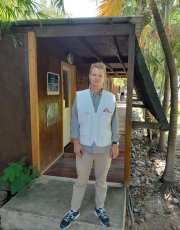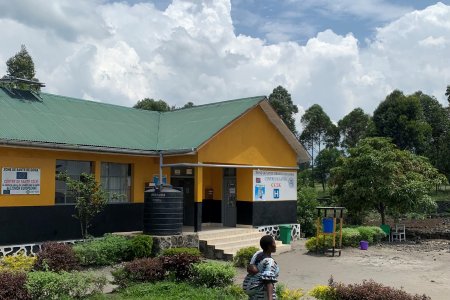
Jacob Burns started working for MSF in 2018. He has worked in the field and at headquarters as a communications officer, did a year at the Crash from 2022 to 2023, and was most recently a project coordinator in Haiti and Gaza. Before working for MSF, he was a freelance journalist in the Middle East and worked on human rights, notably with Amnesty International in Palestine.

